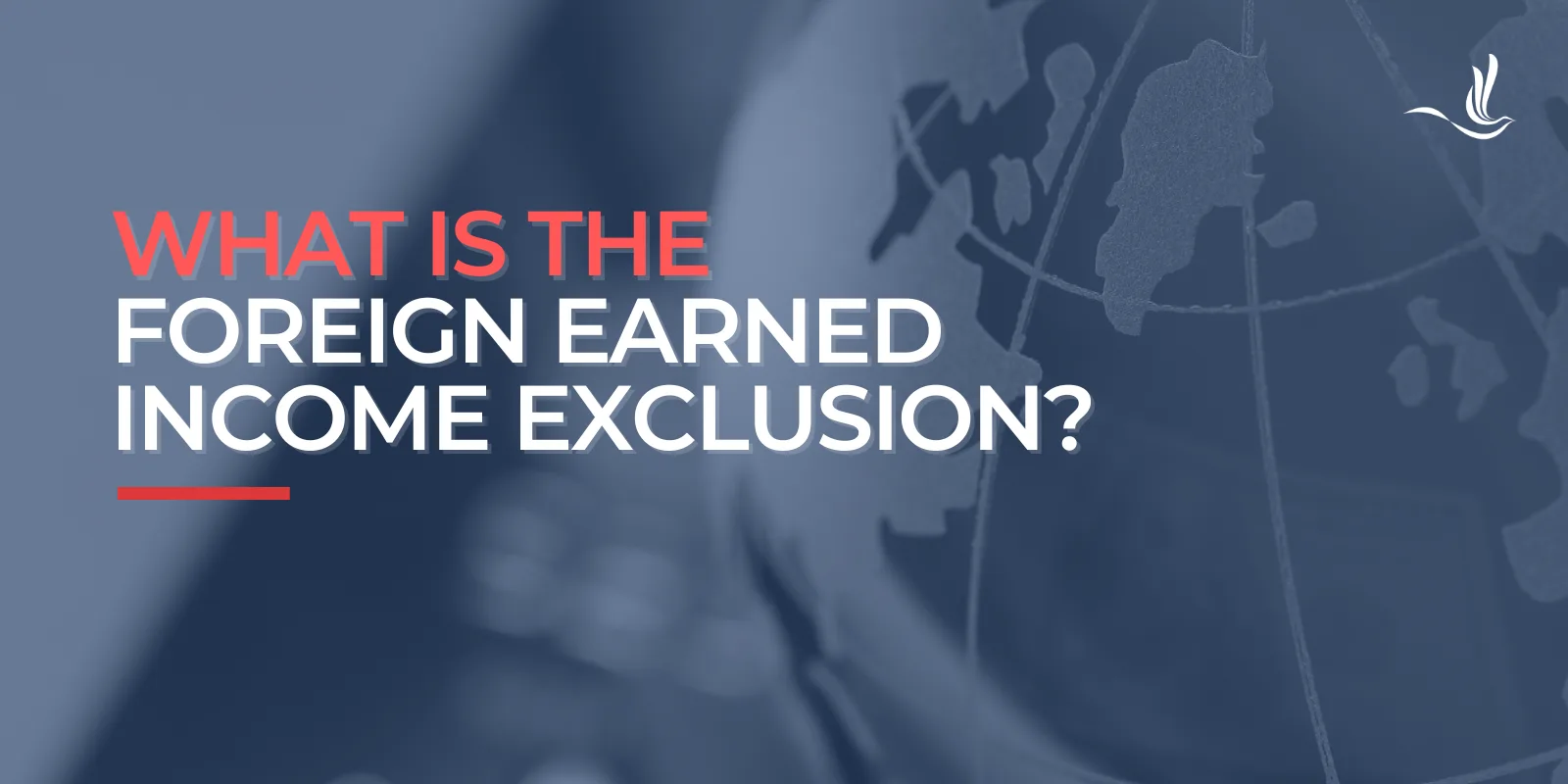The Foreign Earned Income Exclusion (FEIE) is a provision in the U.S. tax code that allows eligible taxpayers to exclude a portion of their income earned abroad from U.S. taxation. This exclusion is particularly beneficial for Americans working and living overseas, as it helps reduce the potential burden of double taxation. Below, we explore how the FEIE works, who qualifies, and what taxpayers should consider when claiming this benefit.
What is the Foreign Earned Income Exclusion?
The FEIE is a tax benefit under Section 911 of the Internal Revenue Code. For the 2024 tax year, eligible taxpayers can exclude up to $126,500 of their foreign-earned income. This amount is adjusted annually for inflation. For 2025, the maximum exclusion is $130,000. The exclusion applies to income earned from personal services, such as wages, salaries, or self-employment income, but does not include unearned income, such as dividends, interest, or capital gains.
Who Qualifies for the FEIE?
To claim the FEIE, you must meet specific criteria:
- Tax Home Test: Your tax home must be in a foreign country. A tax home is generally the location of your main place of work or business.
- Qualifying Presence Test: You must meet either the Bona Fide Residence Test or the Physical Presence Test:
- Bona Fide Residence Test: You must be a bona fide resident of a foreign country or countries for an uninterrupted period that includes an entire tax year.
- Physical Presence Test: You must be physically present in a foreign country or countries for at least 330 full days during any 12-month period.
How to Claim the FEIE
To claim the FEIE, you must file Form 2555 (Foreign Earned Income) along with your U.S. tax return (Form 1040). Here are the steps.
- Determine Eligibility: Ensure you meet the tax home and qualifying presence tests.
- Calculate the Exclusion: Include only foreign-earned income and exclude unearned income.
- File Form 2555: Provide detailed information about your residency status, foreign income, and qualifying presence.
- Report Any Foreign Taxes Paid: While claiming the FEIE, you may also qualify for the Foreign Tax Credit, which can offset U.S. taxes on income not excluded by the FEIE.
Example Scenarios
Let’s say Jane, a U.S. citizen, moved to France for work in January 2024 and established her tax home there. She earned $130,000 in salary. By meeting the Bona Fide Residence Test, Jane can exclude $126,500 of her foreign income under the FEIE and pay U.S. taxes only on the remaining $3,500. In another scenario, Tom, a U.S. citizen, worked remotely from Costa Rica for a U.S. company. He stayed in Costa Rica for 340 days in 2024, meeting the Physical Presence Test. Tom’s $90,000 income qualifies for the FEIE, and he can exclude the full amount. Sarah, a U.S. citizen, worked as a self-employed consultant in Japan, earning $150,000 in 2024. She met the Bona Fide Residence Test. While Sarah can exclude $126,500 under the FEIE, she remains subject to U.S. self-employment taxes on her net earnings.
Important Considerations
There are a few key considerations to keep in mind when excluding foreign income. For example, if your employer provides housing or you incur housing expenses abroad, you may qualify for an additional housing exclusion or deduction. These are calculated using Form 2555, Foreign Earned Income. It’s also important to note that the FEIE does not exempt self-employed individuals from U.S. self-employment taxes. You may still owe Social Security and Medicare taxes on your net earnings.
Also, if you are a dual-status taxpayer (part-year resident), your eligibility for the FEIE may be limited. For example, John, a U.S. citizen, moved to Germany in July 2024 after working in the U.S. for the first half of the year. He earned $50,000 in the U.S. and $60,000 in Germany. As a dual-status taxpayer, John’s eligibility for the FEIE is limited to income earned after his move. He can only exclude a portion of the $60,000, provided he meets the Physical Presence Test during his time abroad.
Finally, while you cannot claim the FEIE and Foreign Tax Credit on the same income, they can be used together strategically to minimize taxes on different portions of your income. For example, consider Emily, a U.S. citizen working in Germany, who earns $150,000 in 2024. She excludes $126,500 of her income using the FEIE but still has $123,500 of taxable income. Emily also pays foreign taxes on her entire income in Germany. To reduce her U.S. tax liability, she applies the Foreign Tax Credit to the remaining $23,500 of taxable income, effectively minimizing her overall taxes.
Common Pitfalls to Avoid
- Failing to Establish a Tax Home: Working abroad temporarily without establishing a tax home could disqualify you from the FEIE.
- Misunderstanding Residency Requirements: Ensure you fully understand and meet either the Bona Fide Residence Test or the Physical Presence Test.
- Overlooking Housing Exclusions: Many taxpayers miss out on additional exclusions for qualified housing expenses.
- Not Keeping Proper Records: Maintain meticulous records of your travel, income, and housing expenses to substantiate your claims.
Tax Help for Those Who Have Foreign Earned Income
The FEIE is a valuable tool for U.S. expatriates seeking to reduce their tax liability while working abroad. By understanding the eligibility criteria, filing requirements, and coordination with other tax benefits, you can maximize your savings and comply with U.S. tax laws. Whether you’re a seasoned expat or planning your first overseas assignment, consulting a tax professional familiar with international tax issues can ensure you’re taking full advantage of the FEIE while avoiding costly errors. Optima Tax Relief is the nation’s leading tax resolution firm with over a decade of experience helping taxpayers with tough tax situations.
If You Need Tax Help, Contact Us Today for a Free Consultation
Publisher: Source link











